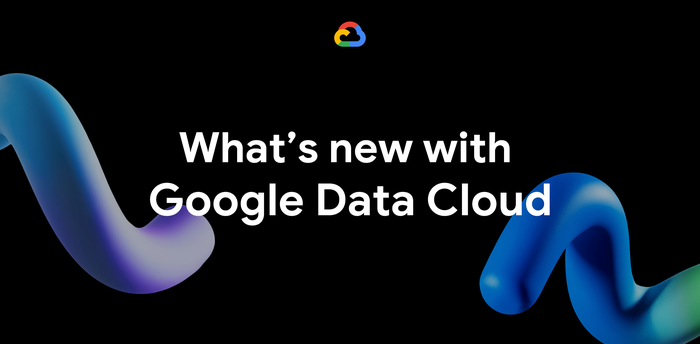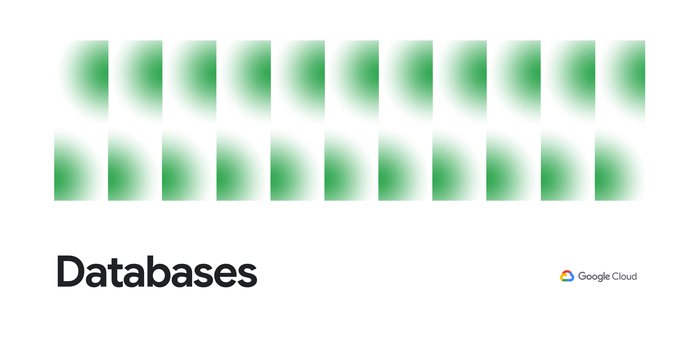Announcing AlloyDB free trial clusters: your playground for PostgreSQL innovation

Emir Okan
Senior Product Manager
Yoav Eilat
Product Marketing Manager, Databases
What do you want from your PostgreSQL database? What if it could run much faster, so you could run the same applications using smaller instances and save on costs? Wouldn’t it be amazing if it had AI-assisted capabilities that not only made your database easier to manage, but also more reliable and secure? Or maybe it could provide you with excellent vector search capabilities and AI ecosystem integrations to help build generative AI into your apps?
Well, AlloyDB is a 100% PostgreSQL-compatible database that can do all of this for you and much more. And with the new AlloyDB free trial clusters, you can try it — you guessed it — for free!
What is AlloyDB anyway?
AlloyDB isn't just another database engine; it's a fully managed, PostgreSQL-compatible powerhouse engineered for those who crave exceptional performance, scale, and reliability as well as full open-source compatibility. Whether your app is juggling high throughput, wrestling with complex queries, or swimming in massive data volumes, AlloyDB is ready to deliver.
What makes AlloyDB so special? Let's break it down:
-
PostgreSQL compatibility: Your existing PostgreSQL tools and knowledge are still your best friends. AlloyDB plays well with your code, your PostgreSQL extensions, drivers, and everything else.
-
Up to 2x better price-performance compared to self-managed PostgreSQL: AlloyDB offers 4x faster transactional performance than standard PostgreSQL, so get ready for a more cost-effective solution. This means your existing PostgreSQL workloads can run on smaller machines in AlloyDB, saving on infrastructure costs.
-
Availability beyond the four 9s: AlloyDB offers a superb 99.99% availability SLA, but our secret sauce is a suite of adaptive and auto-pilot features, like our adaptive vacuum, that reduce user errors and improve reliability.
-
Effortless scalability: Need more room to grow? AlloyDB expands with you, with minimal downtime drama. Planned operations incur less than 1 second of application downtime, and read pools are updated with zero downtime.
-
Innovation: AlloyDB is packed with cutting-edge capabilities like a columnar engine for lightning-fast analytics, AlloyDB AI for generative AI and vector search applications with seamless integration with Vertex AI, and Gemini in Databases to supercharge database development and management.
AlloyDB free trial clusters: where your workload meets the cloud
There’s no substitute for experiencing a database yourself, with your own real-world workload. Since a standard cloud trial is not always enough for full-scale testing, we’re happy to announce AlloyDB free trial clusters to give you the time and the resources you need to perform a full-blown trial. Clusters come loaded with a powerful 8 vCPU and 64 GB RAM primary instance and 1 TB of regional storage — an order of magnitude more storage than major competitive offers during trials.
To make your journey smoother, there are guided tutorials right in the AlloyDB console that walk you through creating a database, loading your data, and running sample queries. Virtually every AlloyDB feature is available in a free trial cluster — for example, you can add a read pool instance to your cluster at no cost to experience AlloyDB’s near-real-time horizontal scalability.
There are several ways to connect to your new cluster. To quickly test a query, the easiest option is to navigate to AlloyDB Studio in the console and interact with your database from there. To use a PostgreSQL client on your laptop, connect using the public IP address or via the Auth Proxy. If you have your own app running in your VPC, you can connect to the cluster using its private IP address.
You don’t need to be a new Google Cloud customer to use AlloyDB free trial clusters; most accounts who haven’t used AlloyDB before are eligible. You can enjoy your free environment for up to 30 days. Ready to upgrade? With a single click, your database seamlessly transitions into a regular AlloyDB cluster with no interruption.
If you run out of trial time, don’t worry — your cluster is kept live for 15 more days at no cost. You can upgrade your cluster and continue where you left off, or delete it if you no longer need it. Have more workloads to test? Although you get a single trial per project, your organization is still eligible for trials in other projects, so please spread the news.

Who should take AlloyDB for a spin?
We think of AlloyDB as the future of PostgreSQL, and would love you to see what it can do for you and your organization. AlloyDB is the perfect match for:
-
Application developers building high-performance apps who need a database with the highest reliability, performance, and scalability
-
Database administrators and database platform teams who want to ditch operational headaches and offer new database options to their organization
-
Established businesses migrating from legacy on-premises databases to the cloud
-
Startups looking for a scalable, cost-effective database solution
-
Data scientists and ML engineers developing data-intensive applications or AI models
AlloyDB isn't just for a select few — it's powering innovation across industries. We're proud to have customers like Bayer, Character.AI, Apex Fintech Solutions, FLUIDEFI, Neuropace, and others leveraging AlloyDB to transform their business.
Getting started is a breeze
Creating your free trial cluster is as easy as pie. If you’re new to Google Cloud, just sign up for an account via the AlloyDB free trial link. If you're already a Google Cloud user, head over to the AlloyDB console. Once you’re in the console, click "Create a trial cluster" and we'll guide you through migrating your PostgreSQL data to a new AlloyDB database instance.
The future of PostgreSQL is here, and it’s built for you. Read more about AlloyDB in our brand-new e-book. Then start your free trial and see what AlloyDB can do for your applications.


